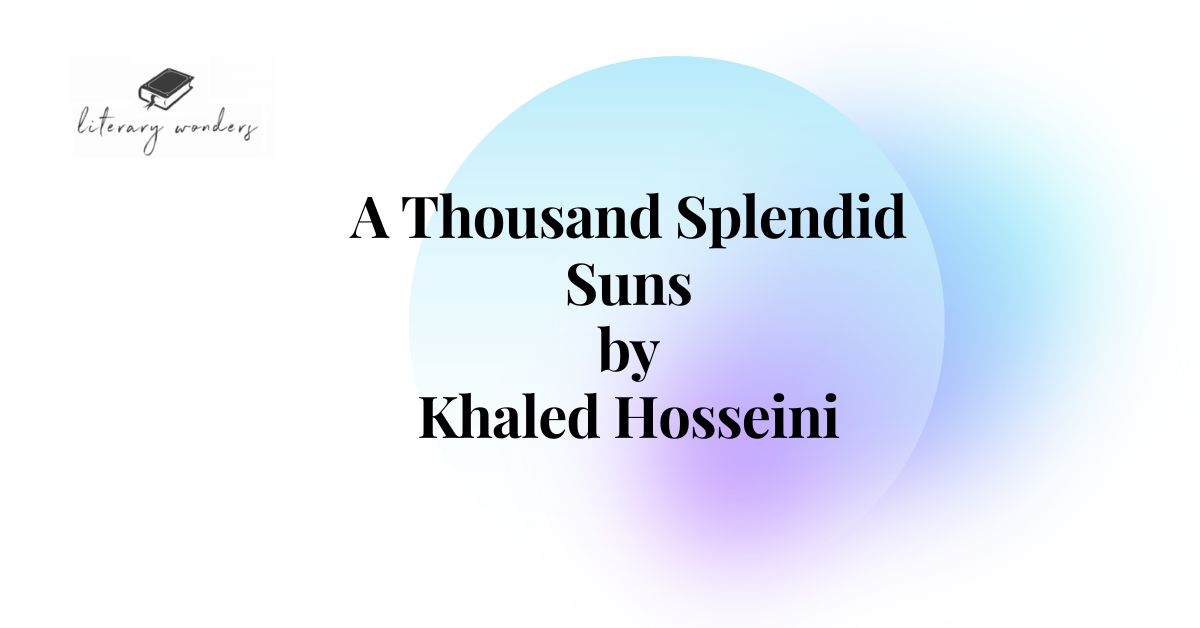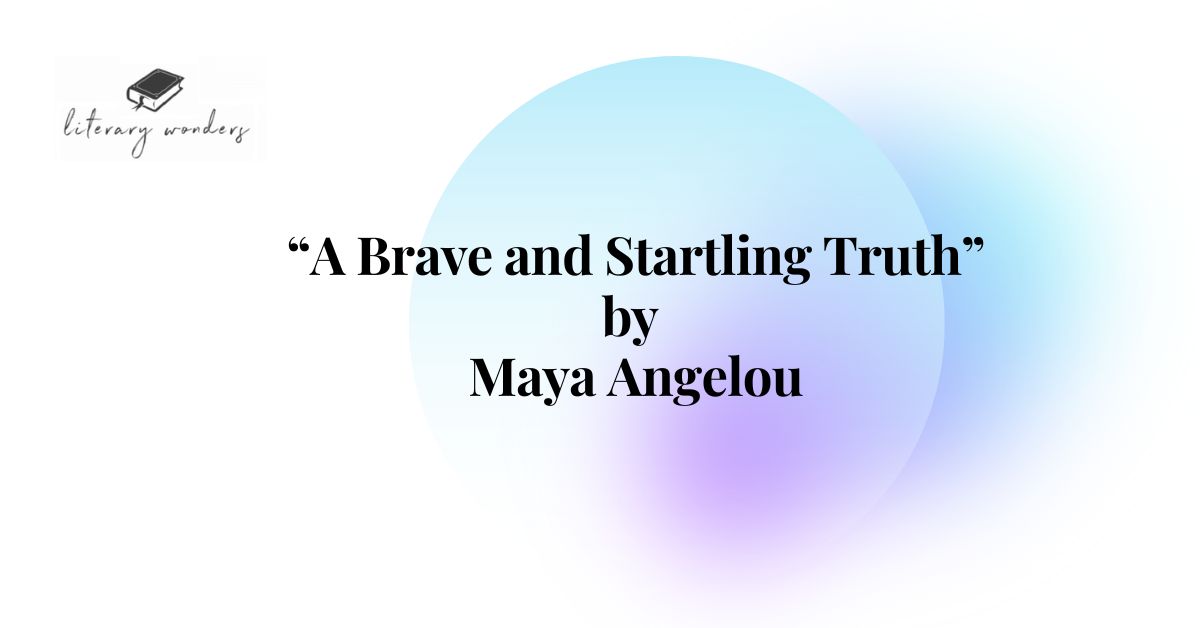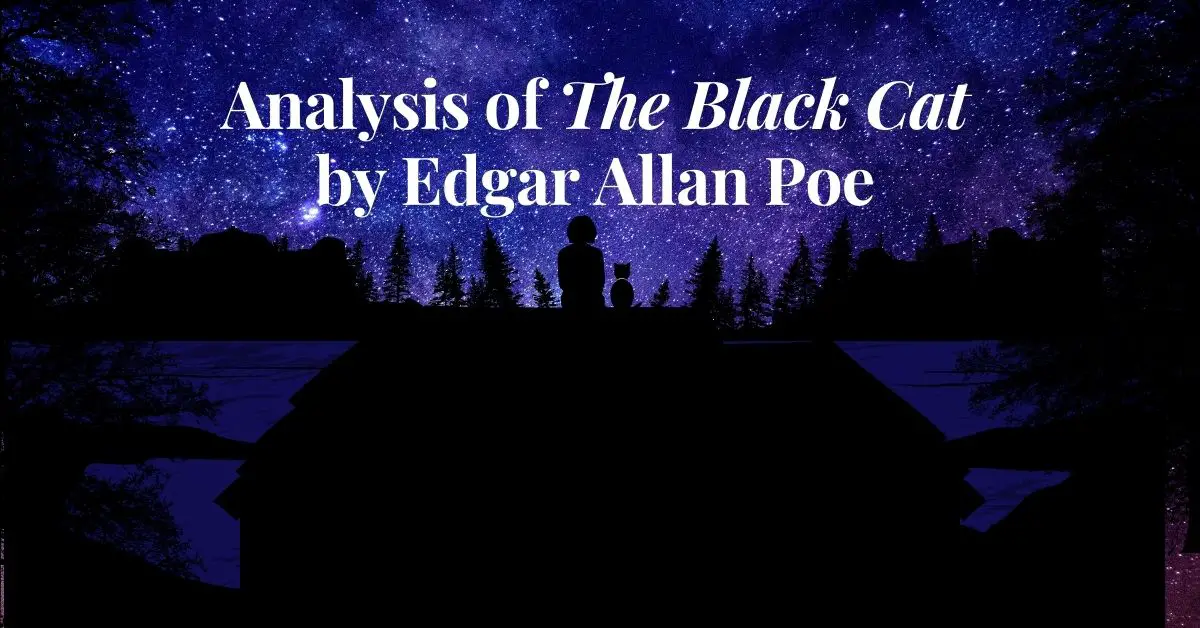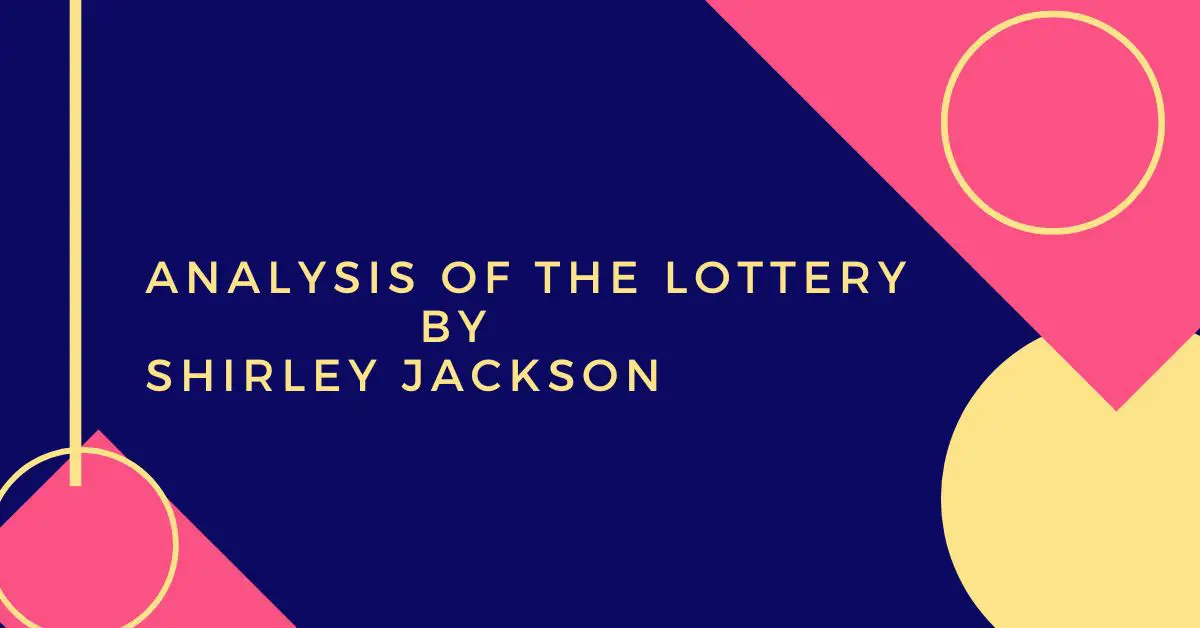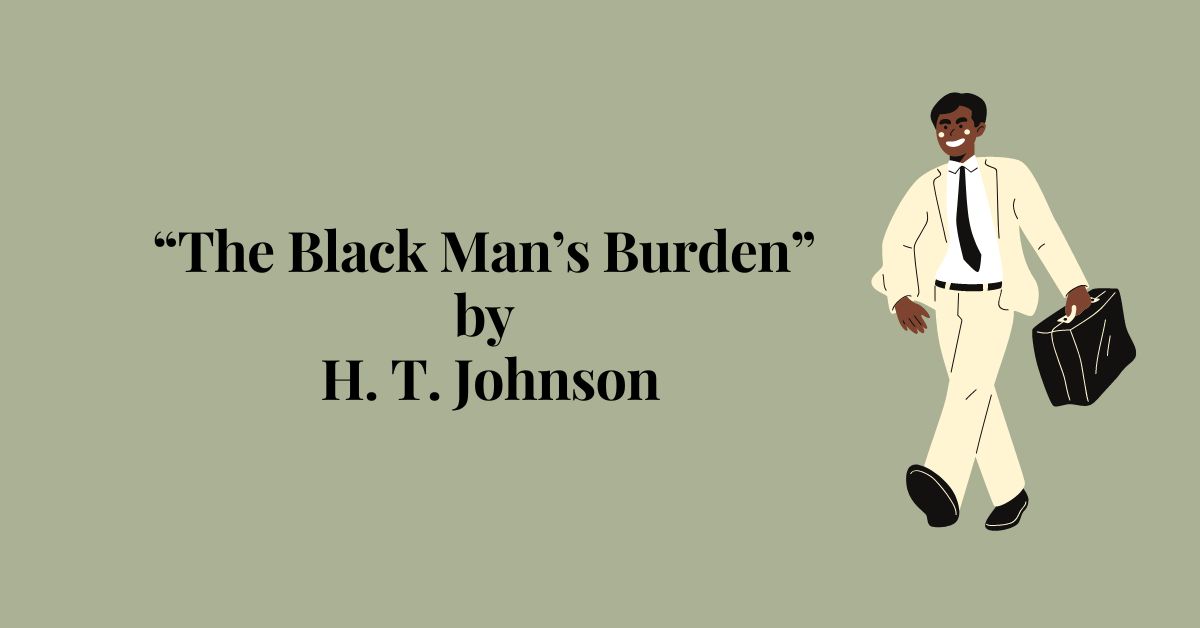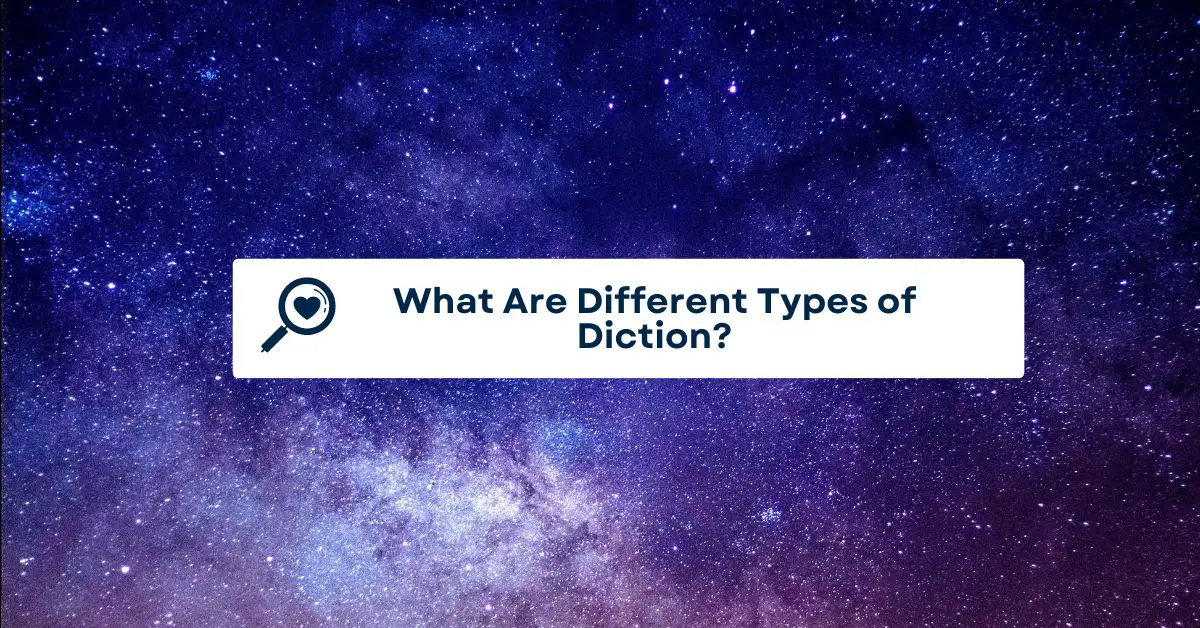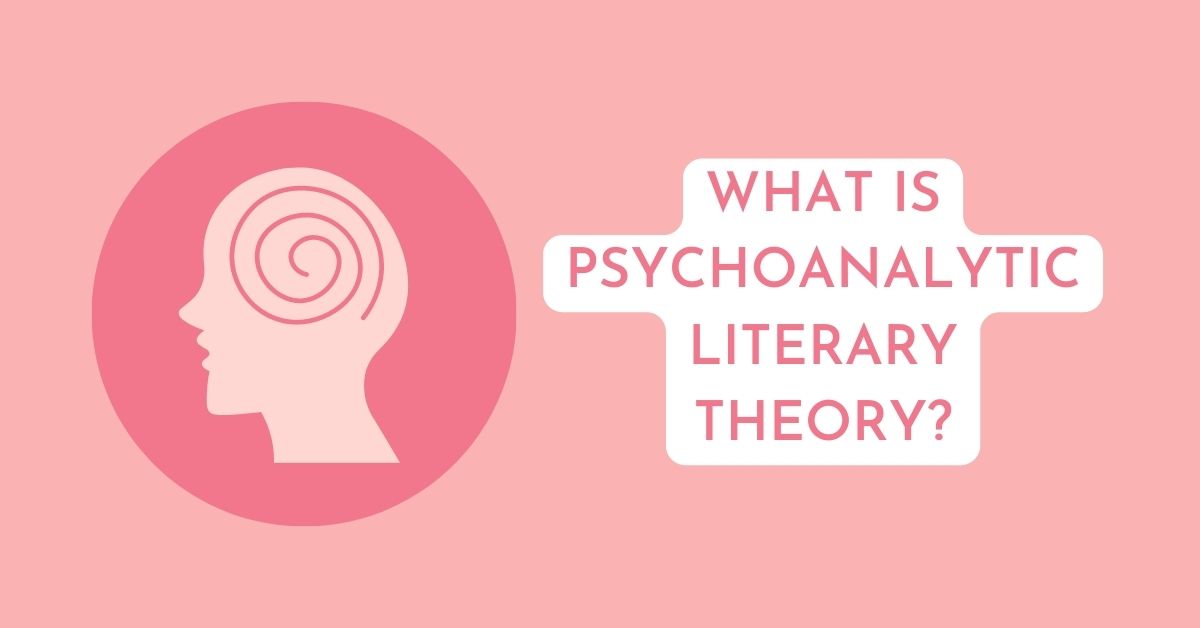Summary of A Thousand Splendid Suns A Thousand Splendid Suns by Khaled Hosseini is a powerful and symbolic novel set in Afghanistan. The book’s timeline spans from the early 1960s to the early 2000s. The story centers around two women, Mariam and Laila, who are brought together by their shared experiences of war and oppression. […]
Month: January 2023
“A Brave and Startling Truth” by Maya Angelou
Summary of the Poem “A Brave and Startling Truth” “A Brave and Startling Truth” by Maya Angelou is a symbolic poem. It speaks to the need for humanity to come together and create a world of peace and harmony. The poem begins with a call to action, urging the reader to rise up and take […]
Analysis of The Black Cat by Edgar Allan Poe
Introduction Edgar Allan Poe, a promising American poet and writer is famous for his dark and twisted stories, and The Black Cat is undoubtedly no exception. Published in 1845, this short story has remained a classic of gothic literature, with its disturbing themes of guilt, madness, and violence. It’s a chilling tale of a man’s […]
“Each Life Converges to Some Centre” by Emily Dickenson
Summary of “Each Life Converges to Some Centre” “Each Life Converges to Some Centre” is a thought-provoking poem by Emily Dickenson, a phenomenal American writer, and poet. Emily expresses that every human has a goal or purpose in life, even if it is not fully acknowledged or understood. The goal is often considered too beautiful […]
Analysis of The Lottery by Shirley Jackson
Introduction The Lottery by Shirley Jackson is a symbolic short story that has been widely adored and discussed since its first inception in 1948. It is a classic of modern literature that has been praised and studied by generations of readers. It is often seen as a powerful and shocking allegory of the human condition, […]
“The Black Man’s Burden” by H. T. Johnson
Introduction In 1899, a British novelist and poet, Rudyard Kipling, wrote a poem called “The White Man’s Burden,” in which Kipling encouraged the United States to take on the responsibilities of empire, similar to how Britain and other European nations had done so. In this poem, he addresses Theodore Roosevelt, who would later become vice-president […]
“The Bells” by Edgar Allan Poe
Analysis of “The Bells” Edgar Allan Poe was a master of the macabre, and his poem “The Bells” is no exception. The poem, originally published in 1849, is a classic example of Poe’s use of onomatopoeia, symbolism, and alliteration to bring to life the emotions of fear and dread associated with bells. In this blog […]
What Are Different Types of Diction?
Etymology and Meanings of Diction The word “diction” comes from the Latin word “dictionem,” which means “expression” or “utterance.” In modern English, diction refers to the choice and use of words in speech or writing. It is an aspect of language that can affect the clarity, precision, and effectiveness of communication. Diction can also refer […]
Analysis of “The Red Wheelbarrow” by William Carlos William
Summary of the Poem “The Red Wheelbarrow” Written by William Carlos William, a phenomenal American poet, and writer, “The Red Wheelbarrow” is a short, enigmatic poem. It consists of just sixteen words, divided into four lines. The poem gained immense popularity due to its brevity and use of imagery. The poem is often interpreted as […]
What is Psychoanalytic Literary Theory?
Etymology, Meanings, and Definition of “Psychoanalytic Literary Theory” Etymology: The term “psychoanalytic” comes from the Greek word “psyche,” which means “soul,” and the word “analysis,” which means the study or examination of something. “Literary theory” refers to the study and interpretation of literature. Meaning: Psychoanalytic literary theory analyzes literature that focuses on the psychological motivations […]

